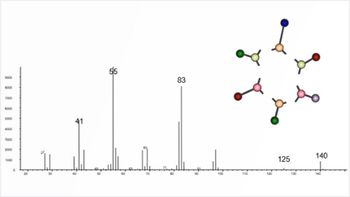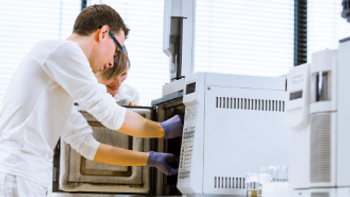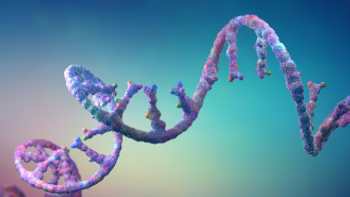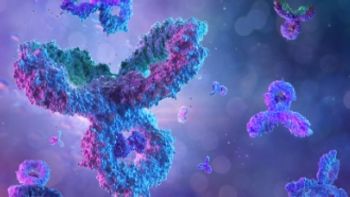
Advances in Small Molecule Analysis: A Virtual Symposium
Wednesday and Thursday, June 29 and 30, 2022 Day 1: 8:00am – 11:15am EDT Day 2: 8:00am – 11:15am EDT Learn about the latest novel analytical techniques and workflows that help analysts obtain the results they are looking for in “real world” situations involving small molecules in the pharmaceutical sector and analysts analyzing small molecules in the environment.
Register Free:
Event Overview:
Following the success of previous virtual symposiums organised by The Chromatographic Society (ChromSoc) in collaboration with LCGC we are organising another two-day virtual event focusing on the latest developments and challenges in the field of small molecule work with an emphasis on pharmaceutical applications. The event will include selected highlights of presentations from ChromSoc’s Spring Symposium. Leading specialists from industry and academia will explain how they apply theory and the latest advances to solve very difficult challenges in the area of small molecule analysis in “the real world”
There will also be informative sessions from leading manufacturers who are active in this dynamic field of separation science, illustrating how their technologies solve problems in practice.
To learn more about the event or view the full agenda,
Key Learning Objectives:
- Find out about the latest cutting-edge advances using chromatography in the evolving field of small molecule analysis with an emphasis on pharmaceutical applications
- Learn about the latest novel detection techniques and workflows that help analysts to achieve results effectively and efficiently in “real world” situations of small molecule analysis
- Learn analytical strategies that provide practical benefits, such as increased sensitivity and higher throughput
- Discover practical advances in screening technologies using LC, HPLC, and SFC; solutions for analyzing small molecules in the environment; and the latest developments in achiral SFC for small molecule analysis
- Learn about innovative research to design an exogenous VOC for biomedical analysis using SPME–GCMS and GC–IMS
- What would a world without chromatography look like?
Who Should Attend:
Laboratory scientists and researchers involved in small molecule analysis in the pharmaceutical sector and involved in analyzing the impact of small molecules in the environment.
Speakers
Tim Underwood
Global Director of Purification, Medicines Design
GSK, Purifications, Medicines, Design, UK
Tim has worked for GSK for 38 years and made his first injection on a HPLC instrument on 6 August 1984 (his very first day). Beginning in production monitoring and with separation science never straying far from my professional requirements, Tim transferred to R&D after 5 years to become a research chromatographer in the Structural Chemistry department. In the subsequent years, the department name changed more often than his job title! The department is now Discovery Analytical and he now oversees all purification and bespoke analytical activities globally in support of small molecule discovery synthetic chemistry.
Helena Rapp-Wright
Research Associate
MRC Centre for Environment & Health, Environmental Research Group; Faculty of Medicine, Imperial College London, UK
Dr Helena Rapp Wright earned her BSc in chemistry at the University of La Laguna (ULL, Spain) in 2014 and an MRes in forensic science at King’s College London (KCL, UK) in 2016. During her BSc and MRes, she undertook an industrial placement and two research projects focused on analytical chemistry. Following her MRes study, she worked at LGC (Fordham, UK) for two years in the small molecules department for bioanalytical sciences. Her work focused on developing analytical techniques for the identification and quantification of drugs from clinical trials, as well as their sample analysis. In 2018, she successfully secured a PhD studentship sponsored by the Environmental Protection Agency (EPA) in Ireland. Her PhD was held in the School of Chemical Sciences at Dublin City University (DCU) and part-time at KCL, researching contaminants of emerging concern (CECs) in environmental water samples. Her PhD was completed in 2021, and she is currently a postdoctoral researcher at Imperial College London within the Emerging Chemical Contaminant Group. Helena (or Dr Rapp Wright) is also a member of the Royal Society of Chemistry. Her research interests lie in the broad areas of analytical and environmental chemistry, mainly wastewater analysis, and contaminants of emerging concern.
Caroline West
Professor in Analytical Chemistry
University of Orleans, ICOA, CNRS UMR7311, France
Caroline West is a full professor in analytical chemistry at the University of Orleans, France. Her main scientific interests lie in fundamentals of chromatographic selectivity, both in the achiral and chiral modes mainly in SFC, but also in HPLC. She also applies these methods to samples of pharmaceutical interest and natural products.
She has authored six book chapters and more than 100 papers in international peer-reviewed journals, and has presented about 100 lectures in national and international conferences and seminars. She is also an advisory board member for several journals in separation science. In 2015, she received the “LCGC Emerging Leader in Chromatography” award from LCGC North America.
John R. Dean
Professor of Analytical and Environmental Sciences
Department of Applied Sciences, Northumbria University, Newcastle upon Tyne, UK
John R. Dean is currently Professor of Analytical and Environmental Sciences in the Department of Applied Sciences. He has previously held the positions of lecturer (1988), senior lecturer (1990), reader (1994), principal lecturer (1998), and associate dean for research (2004) at Northumbria University. He was awarded a personal chair by Northumbria University in August 2004. In 1998, he was awarded a D.Sc. (London) in analytical and environmental science and was the recipient of the 23rd SAC Silver Medal in 1995 (awarded by the Royal Society of Chemistry Analytical Division). John is also a Chartered Scientist, Chartered Chemist, and Fellow of the Royal Society of Chemistry. In 2015, he became Principal Fellow of the Higher Education Academy. John obtained his BSc (Hons) in chemistry from the University of Manchester Institute of Science and Technology (now Manchester University), and an MSc in analytical chemistry and instrumentation from Loughborough University. This was followed by a PhD, DIC at Imperial College, London under the supervision of Professor R.D. Snook. Postdoctoral research followed at the then Food Science Laboratory of the Ministry of Agriculture, Fisheries and Food in conjunction with Professor L.C. Ebdon at the University of Plymouth. John has been principal or co-investigator of externally funded research grants and has published extensively (over 225 refereed research papers, book chapters, and books) in analytical and environmental John’s research interests are diverse and varied.. He is cuurently actively engaged in the development of new chromatographic methods, including ion mobility spectrometry, to assess malodour from textiles. In addition, his research has led to the development of novel approaches, based on the use of enzyme substrates, as a diagnostic tool for detection of pathogenic bacteria in food and biological matrices.
Lewis Couchman
Facility and Research Director
Analytical Services International Ltd., St. George's, University of London, London, UK
Lewis is Facility Director at Analytical Services International, based at St Georges, University of London. His current role involves overseeing the development, implementation, and routine analysis of biological samples for TDM, forensic, and clinical toxicology, and for the support of clinical trials. Lewis is the chair of the London Toxicology Group, and a committee member of the Royal Society of Chemistry Separation Science Group and the London Biological Mass Spectrometry Discussion Group.
Peter Myers
Professor
University of Liverpool, Liverpool, UK
Peter Myers obtained his B.Sc. in pure chemistry with a first-class honours in 1969 from the University of Salford and his PhD’s in maths, physics, and chemistry in 1972 from the same university. He was granted a Fellowship of the Royal Society of Chemistry in March 1996. He is a member of The Royal Institution of Great Britain, of The Pye 104 Club, of the Royal Photographic Society, and founding member of SWAG. In 2006, he was awarded the Chromatographic Society’s Jubilee Medal and in 2016 the Martin Medal for his achievements in chromatography. In 2017, he was awarded the Knox Medal by the Royal Society of Chemistry. Peter started work at Phase Separations (1979–1995) and became the technical director responsible for the development of the Sol-Gel process for the manufacture of spherical ceramics for use in all forms of chromatography. The process now produces silica, alumina, zirconia, and titania porous spheres with a wide range of controllable pore sizes, pore volumes, and surface areas. Today, Peter acts as independent consultant across all areas of chromatography and instrumentation. In February 2007 Peter moved to the University of Liverpool. Here, Peter has established the UK’s largest chromatography research group, with the aim of establishing a strong centre of excellence for chromatography and related disciplines. He also plans to replace the industrial habit of collecting fluid samples in bottles and delivering them to laboratories for analysis by exchanging them with automated instruments. The proposed new self-contained analyzers will allow measurement at the point of use to eliminate labour, transport time, and potential contamination. Working with IVCC, Peter will support new analytical techniques and measurements, together with developing the use of porous particles as chemical delivery platforms.
Register Free:
Newsletter
Join the global community of analytical scientists who trust LCGC for insights on the latest techniques, trends, and expert solutions in chromatography.




